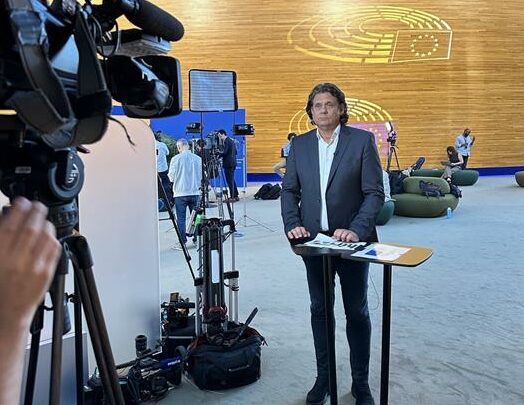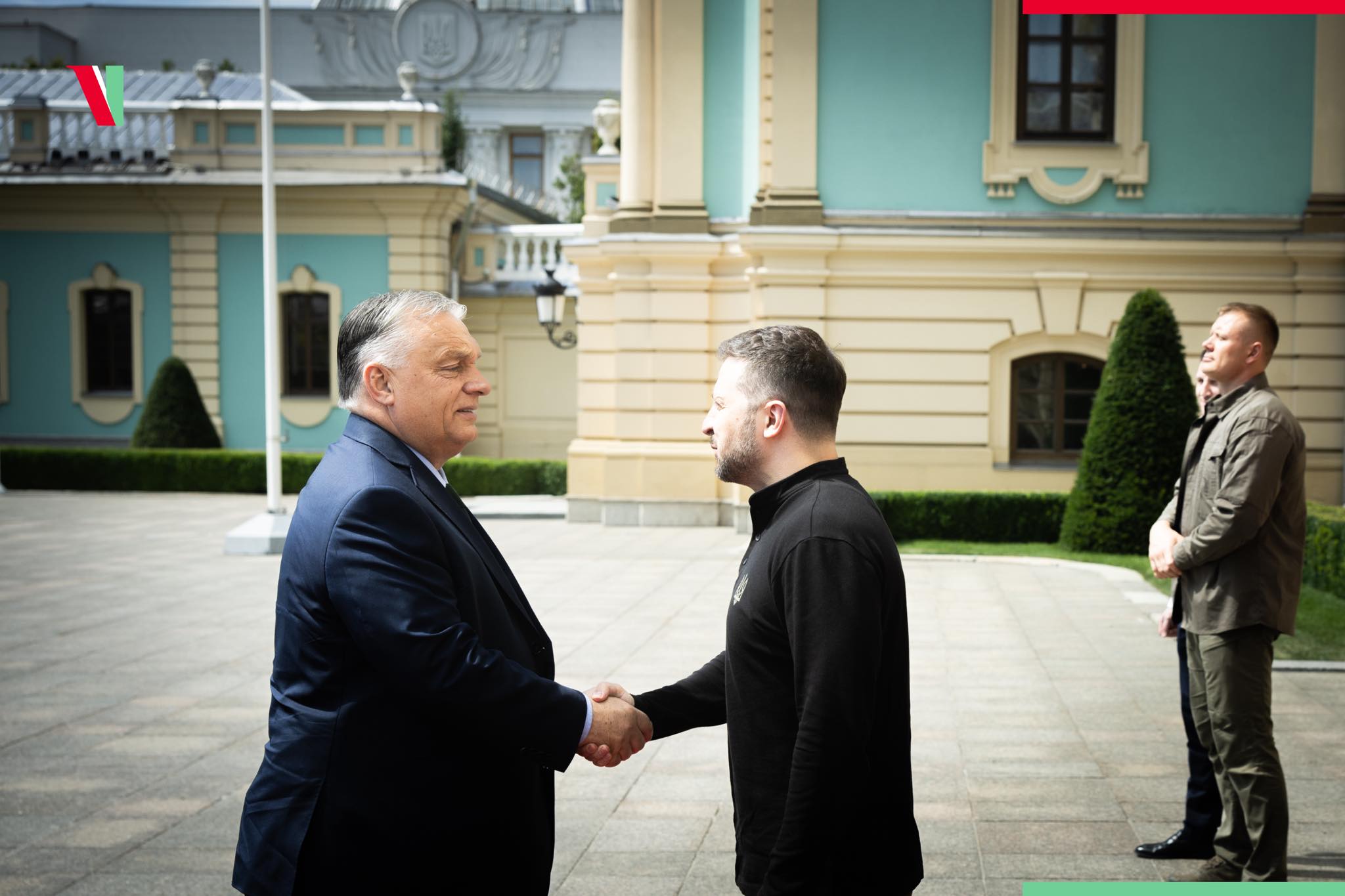Tamás Deutsch, the head of ruling’ Fidesz’s European parliamentary delegation, has called on the European Commission to “take immediate steps to counter Ukraine’s blackmail” of Hungary and Slovakia.
In an interview to public radio on Friday, Deutsch criticised the EC’s “inaction” concerning Ukrainian restrictions of the transit of Russian crude to Hungary and Slovakia, insisting that Ukraine was engaged in “blackmail” and in breach of its association agreement with the EU.
Noting that Fidesz’s EP group has sent a letter to the EC urging it to take action on the issue, Deutsch said Ukraine’s decision to restrict crude deliveries to two EU member states was “unprecedented”, as it seriously imperilled their energy security.
He said Ukraine had made it clear that its goal was to blackmail Slovakia and Hungary with the aim of getting them to change their pro-peace stance and join the “pro-war coalition backing the expansion of the Russia-Ukraine war with money, weapons and political support”.

Deutsch said it was “obvious” that Ukraine would “ignore even the issue of energy security if it serves its political goals”. Also, the country was prepared to violate the association agreement with the EU “because the European Commission thinks it has to stand by Ukraine politically under all circumstances”.
Regarding Ukraine, “pro-war political interests supersede all else”, he said, insisting that the EC had failed to fulfil even its most basic obligations if it led to bolstering pro-peace efforts, and was even prepared to “look the other way” when it came to “political blackmail”.

Brussels’ decisions, Deutsch said, were dictated by “an ideological bias that ignores the law”. He said the EC would take action once Ukraine started taking steps that directly went against the economic, political and security interests of western European countries, adding that such a scenario was “easy to imagine as Ukraine becomes emboldened”.
Read also:
There is a lot of political maneuvering going on with this issue on both sides and the reality of the situation is not publicly disclosed. First of all why is Ukraine sanctioning Lukoil while sending the same amount of Russian oil through the Druzhba pipeline but from other Russian suppliers? Secondly, why does Hungary care whether the oil is from Lukoil or a different Russian supplier? Thirdly, the Ukrainian cut off of Lukoil crude started weeks earlier and it was only after Orban visited Putin in Moscow that he started to make the complaint that Ukraine was putting Hungary in jeopardy. Fourth, why does Hungary insist that it cannot get oil via Croatia? Fidesz has made all sorts of excuses for that and the Croatians have answered all of them and claims that Hungary is pushing misinformation on the issue. The bottom line is that there is no real crisis or oil shortage for Hungary and it appears that Fidesz as usual enjoys creating conflict and playing the victim of “blackmail” all for domestic politics.
Douche should stop saying Ukraine does this for political reasons while he and his ilk have withheld aid to Ukraine for years now for purely political points for their close friend Putin. Douche and Peter, what a pair!
Go to hell, Ukraine. I am so done with that country.
Personal feelings aside, this shows the absolute necessity of doing the utmost to achieve energy independence. Forget the “renewable” B.S. and start drilling and fracking. Build nuclear, especially smaller, modular plants. Heck, reopen coal mines!
Let the greenies cry and yell at the sky; this shows that nobody is trustworthy and our energy security can be thrown into disarray overnight.
Oh, the E.U. can go to hell, too. Thanks for NOTHING!
Steiner’s cartoonish comments are always good for a laugh. Steiner Fidesz and the Russians have you totally brainwashed. Deutsch Tamas is pushing the buttons of the simple minded who can’t think for themselves.
Steiner says the EU can go to hell, thanks for nothing! I guess if he really lived here he would thank them for every infrastuctor improvement in the last 15 years, since Hungary has never been a net contributor to the EU while at the same time getting billions to improve Hungary.